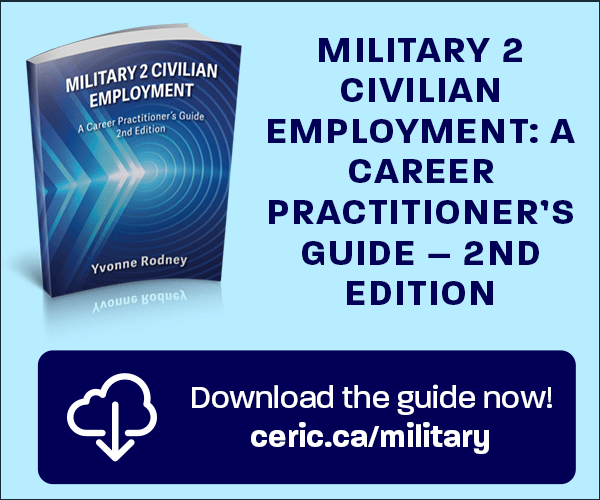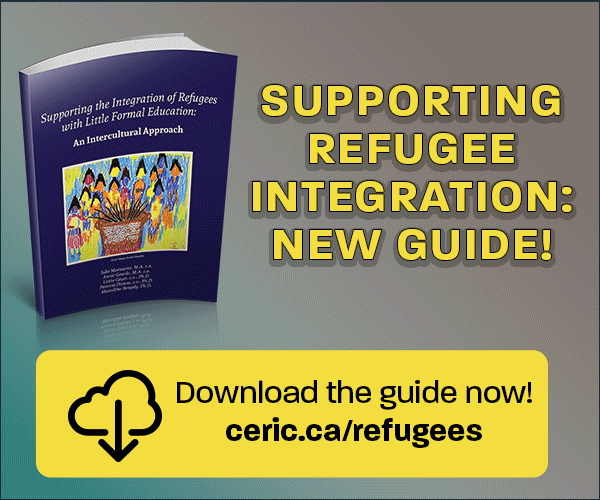Impact of Proactive Personality on Career Adaptability and Intentions for Expatriation
Keywords:
adaptability, international, personality, expatriation, careerAbstract
Decision-making about career direction is an important part of an individual’s life, which requires careful consideration and adaptability in order to meet specific career expectations and needs. Therefore, it is imperative to look for factors that can influence career adaptability. Guided by career construction theory, this research study explored the impact of a proactive personality on career adaptability. The mediating effect of resilience between proactive personality and career adaptability, the mediating effect of cultural intelligence between intentions on expatriate career and career adaptability, and the moderating role of gender between intentions for an expatriate career and career adaptability were examined. Findings revealed useful insights for understanding the relationships between career adaptability and intentions for pursuing an expatriate career.
References
Ang, S., Van Dyne, L., Koh, C., Ng, K. Y., Templer, K. J., Tay, C., & Chandrasekar, N. A. (2007). Cultural Intelligence: Its Measurement and Effects on Cultural Judgment and Decision Making, Cultural Adaptation and Task Performance. Management and Organization Review, 3(3), 335–371. https://doi.org/10.1111/j.1740-8784.2007.00082.x
Ashford, S. J., & Black, J. S. (1996). Proactivity during organizational entry: The role of desire for control. Journal of Applied Psychology, 81(2), 199–214. https://doi.org/10.1037/0021-9010.81.2.199
Bandura, A. (2002). Social cognitive theory in cultural context. Applied Psychology, 51(2), 269–290. https://doi.org/10.1111/1464-0597.00092
Bateman, T. S., & Crant, J. M. (1993). The proactive component of organizational behavior: A measure and correlates. Journal of Organizational Behavior, 14(2), 103–118. https://doi.org/10.1002/job.4030140202
Bimrose, J., & Hearne, L. (2012). Resilience and career adaptability: Qualitative studies of adult career counseling. Journal of Vocational Behavior, 81(3), 338–344. https://doi.org/10.1016/j.jvb.2012.08.002
Bocciardi, F., Caputo, A., Fregonese, C., Langher, V., & Sartori, R. (2017). Career adaptability as a strategic competence for career development: An exploratory study of its key predictors. European Journal of Training and Development, 41(1), 67–82. https://doi.org/10.1108/ejtd-07-2016-0049
Brislin, R. (2006). Cultural Intelligence: Understanding Behaviors that Serve People’s Goals. Group & Organization Management, 31(1), 40–55. https://doi.org/10.1177/1059601105275262
Buser, T. (2012). Essays in Behavioural Economics [Tinbergen Institute]. University of Amsterdam. http://dare.uva.nl/document/2/109450
Cai, Z., Guan, Y., Li, H., Shi, W., Guo, K., Liu, Y., & Hua, H. (2015). Self-esteem and proactive personality as predictors of future work self and career adaptability: An examination of mediating and moderating processes. Journal of Vocational Behavior, 86, 86–94. https://doi.org/10.1016/j.jvb.2014.10.004
Cerdin, J.-L., & Pargneux, M. L. (2010). Career anchors: A comparison between organization-assigned and self-initiated expatriates. Thunderbird International Business Review, 52(4), 287–299. https://doi.org/10.1002/tie.20350
Chan, S. H. J., & Mai, X. (2015). The relation of career adaptability to satisfaction and turnover intentions. Journal of Vocational Behavior, 89, 130–139. https://doi.org/10.1016/j.jvb.2015.05.005
Collings, D. G., Doherty, N., Luethy, M., & Osborn, D. (2011). Understanding and supporting the career implications of international assignments. Journal of Vocational Behavior, 78(3), 361–371. https://doi.org/10.1016/j.jvb.2011.03.010
Connor, K. M., & Davidson, J. R. T. (2003). Development of a new resilience scale: The Connor-Davidson Resilience Scale (CD-RISC). Depression and Anxiety, 18(2), 76–82. https://doi.org/10.1002/da.10113
Crant, J. M. (2000). Proactive behavior in organizations. Journal of Management, 26(3), 435–462. https://doi.org/10.1177/014920630002600304
Earley, P. C., & Ang, S. (2003). Cultural intelligence: Individual interactions across cultures. Stanford University Press.
Ferreira, N. (2012). Constructing a psychological career profile for staff retention [Unpublished Doctoral dissertation]. University of South Africa.
Frese, M., Garst, H., & Fay, D. (2007). Making things happen: Reciprocal relationships between work characteristics and personal initiative in a four-wave longitudinal structural equation model. Journal of Applied Psychology, 92(4), 1084–1102. https://doi.org/10.1037/0021-9010.92.4.1084
Guan, P., Capezio, A., Restubog, S. L. D., Read, S., Lajom, J. A. L., & Li, M. (2016). The role of traditionality in the relationships among parental support, career decision-making self-efficacy and career adaptability. Journal of Vocational Behavior, 94, 114–123. https://doi.org/10.1016/j.jvb.2016.02.018
Gudykunst, W. B., Ting-Toomey, S., & Chua, E. (1988). Culture and interpersonal communication. Sage.
Hall, E. T. (1959). The silent language. Doubleday.
Hameed, Imran, Khan, A. K., Sabharwal, M., Arain, G. A., & Hameed, I. (2017). Managing successful change efforts in the public sector: An employee’s readiness for change perspective. Review of Public Personnel Administration, 39(3), 398–421. https://doi.org/10.1177/0734371x17729869
Hameed, Irfan, Waris, I., & ul Haq, M. A. (2019). Predicting eco-conscious consumer behavior using theory of planned behavior in Pakistan. Environmental Science and Pollution Research, 26(15), 15535–15547. https://doi.org/10.1007/s11356-019-04967-9
Hayes, A. F., & Preacher, K. J. (2014). Statistical mediation analysis with a multicategorical independent variable. British Journal of Mathematical and Statistical Psychology, 67(3), 451–470. https://doi.org/10.1111/bmsp.12028
Holland, P. J., Allen, B. C., & Cooper, B. K. (2013). Reducing burnout in Australian nurses: The role of employee direct voice and managerial responsiveness. The International Journal of Human Resource Management, 24(16), 3146–3162. https://doi.org/10.1080/09585192.2013.775032
Iredale, R. (2001). The migration of professionals: Theories and typologies. International Migration, 39(5), 7–26. https://doi.org/10.1111/1468-2435.00169
Jiang, Z. (2016). Proactive personality and career adaptability: The role of thriving at work. Journal of Vocational Behavior, 98, 85–97. https://doi.org/10.1016/j.jvb.2016.10.003
Jin, J. F., Ford, M. T., & Chen, C. C. (2013). Asymmetric Differences in Work-Family Spillover in North America and China: Results from Two Heterogeneous Samples. Journal of Business Ethics, 113(1), 1–14. https://doi.org/10.1007/s10551-012-1289-3
Kanfer, R., & Heggestad, E. D. (1997). Motivational traits and skills: A person-centered approach to work motivation. Research in Organizational Behavior, 19, 1–56.
Le, H., Jiang, Z., & Nielsen, I. (2016). Cognitive Cultural Intelligence and Life Satisfaction of Migrant Workers: The Roles of Career Engagement and Social Injustice. Social Indicators Research, 139(1), 237–257. https://doi.org/10.1007/s11205-016-1393-3
Lee, L., Wong, P. K., Foo, M. D., & Leung, A. (2011). Entrepreneurial intentions: The influence of organizational and individual factors. Journal of Business Venturing, 26(1), 124–136. https://doi.org/10.1016/j.jbusvent.2009.04.003
Linkeš, S., Ezekiel, F., Lerch, A., & Meadows, K. N. (2018). Group Career Counselling for International Students: Evaluation and Promising Practices. Canadian Journal of Career Development, 17(2), 45–58.
Luthans, F., Vogelgesang, G. R., & Lester, P. B. (2006). Developing the Psychological Capital of Resiliency. Human Resource Development Review, 5(1), 25–44. https://doi.org/10.1177/1534484305285335
Öncel, L. (2014). Career Adapt-Abilities Scale: Convergent validity of subscale scores. Journal of Vocational Behavior, 85(1), 13–17. https://doi.org/10.1016/j.jvb.2014.03.006
Parker, S. K., Williams, H. M., & Turner, N. (2006). Modeling the antecedents of proactive behavior at work. Journal of Applied Psychology, 91(3), 636–652. https://doi.org/10.1037/0021-9010.91.3.636
Presbitero, A., & Quita, C. (2017). Expatriate career intentions: Links to career adaptability and cultural intelligence. Journal of Vocational Behavior, 98, 118–126. https://doi.org/10.1016/j.jvb.2016.11.001
Rossier, J., Zecca, G., Stauffer, S. D., Maggiori, C., & Dauwalder, J.-P. (2012). Career Adapt-Abilities Scale in a French-speaking Swiss sample: Psychometric properties and relationships to personality and work engagement. Journal of Vocational Behavior, 80(3), 734–743. https://doi.org/10.1016/j.jvb.2012.01.004
Savickas, M. L. (1997). Career adaptability: An integrative construct for life-span, life-space theory. The Career Development Quarterly, 45(3), 247–259. https://doi.org/10.1002/j.2161-0045.1997.tb00469.x
Savickas, M. L. (2002). Career construction: A developmental theory of vocational behavior. In D. Brown (Ed.), Career choice and development (4th ed., pp. 255–311). Jossey-Bass.
Savickas, M. L. (2005). The theory and practice of career construction. In S. D. Brown & R. W. Lent (Eds.), Career development and counselling: Putting theory and research to work (pp. 42–70). Wiley.
Savickas, M. L. (2013). Career construction theory and practice. In S. D. Brown & R. W. Lent (Eds.), Career development and counselling: Putting theory and research to work (2nd ed., pp. 147–183). John Wiley & Sons.
Savickas, M. L., & Porfeli, E. J. (2012). Career Adapt-Abilities Scale: Construction, reliability, and measurement equivalence across 13 countries. Journal of Vocational Behavior, 80(3), 661–673. https://doi.org/10.1016/j.jvb.2012.01.011
Seibert, S. E., Kraimer, M. L., & Crant, J. M. (2001). What do proactive people do? A longitudinal model linking proactive personality and career success. Personnel Psychology, 54(4), 845–874. https://doi.org/10.1111/j.1744-6570.2001.tb00234.x
Super, D. E., & Knasel, E. G. (1981). Career development in adulthood: Some theoretical problems and a possible solution. British Journal of Guidance & Counselling, 9(2), 194–201. https://doi.org/10.1080/03069888108258214
Tak, J. (2012). Career Adapt-Abilities Scale - Korea Form: Psychometric properties and construct validity. Journal of Vocational Behavior, 80(3), 712–715. https://doi.org/10.1016/j.jvb.2012.01.008
Tams, S., & Arthur, M. B. (2007). Studying careers across cultures: Distinguishing international, cross-cultural, and globalization perspectives. Career Development International, 12(1), 86–98. https://doi.org/10.1108/13620430710724848
Tharenou, P. (2008). Disruptive decisions to leave home: Gender and family differences in expatriation choices. Organizational Behavior and Human Decision Processes, 105(2), 183–200. https://doi.org/10.1016/j.obhdp.2007.08.004
Tolentino, L. R., Garcia, P. R. J. M., Lu, V. N., Restubog, S. L. D., Bordia, P., & Plewa, C. (2014). Career adaptation: The relation of adaptability to goal orientation, proactive personality, and career optimism. Journal of Vocational Behavior, 84(1), 39–48. https://doi.org/10.1016/j.jvb.2013.11.004
Triandis, H. C. (1994). Culture and social behavior. McGraw Hill.
van der Velde, M. E. G., Bossink, C. J. H., & Jansen, P. G. W. (2005). Gender differences in the determinants of the willingness to accept an international assignment. Journal of Vocational Behavior, 66(1), 81–103. https://doi.org/10.1016/j.jvb.2003.12.002
Xie, C., Bagozzi, R. P., & Grønhaug, K. (2015). The role of moral emotions and individual differences in consumer responses to corporate green and non-green actions. Journal of the Academy of Marketing Science, 43(3), 333–356. https://doi.org/10.1007/s11747-014-0394-5
Zacher, H. (2015). Daily manifestations of career adaptability: Relationships with job and career outcomes. Journal of Vocational Behavior, 91, 76–86. https://doi.org/10.1016/j.jvb.2015.09.003

Downloads
Published
How to Cite
Issue
Section
License
Copyright (c) 2020 CANADIAN JOURNAL OF CAREER DEVELOPMENT

This work is licensed under a Creative Commons Attribution-NonCommercial-NoDerivatives 4.0 International License.
















